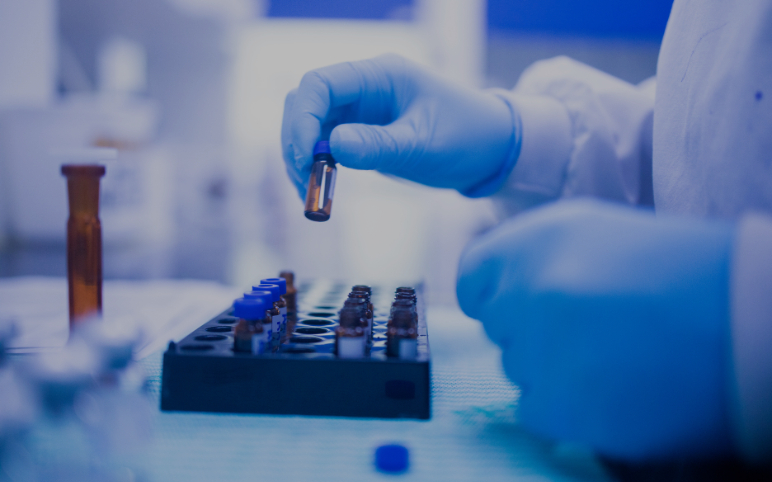Key Cardiovascular Deals of 2025: Sealing the Heartbeat
Sep 05, 2025
Table of Contents
The cardiovascular space has witnessed a surge in strategic collaborations and licensing deals as companies race to address the rising global burden of heart disease with next-generation therapies. Recent transactions reflect a sharpened focus on precision cardiology, novel protein targets, and RNA-based approaches, underscoring the industry’s shift toward innovation-driven growth. These alliances not only aim to bolster R&D pipelines but also signal a broader trend of de-risking early assets through shared expertise and capital.
ProFound Therapeutics and Novartis Enter Strategic USD 750 million Collaboration to Advance Novel Cardiovascular Therapies Using Proteome-Based Drug Discovery
In June 2025, ProFound Therapeutics entered a 4-year strategic collaboration with Novartis to advance novel cardiovascular therapies using its proprietary ProFoundry Platform. This partnership reflects a growing industry focus on mining the expanded proteome for previously unrecognized protein targets, with the potential to unlock first-in-class drug candidates.
Downloads
Click Here To Get the Article in PDF
Recent Articles
- Bayer Phase III NSCLC Trial; D&D Pharmatech Gets FDA Nod for GLP-1R Agonist in Multiple Sclet...
- Polypills: Can they offer a potential approach to treat CVDs?
- Alma Announced the Launch of Alma Duo; Phillips-Medisize Launched a Pen Injector Platform; FDA Ap...
- DelveInsight’s Gene Therapy Reports: Launched
- PCSK9 Inhibitors: A New Era for Cholesterol Management
By combining ProFound’s deep proteomic discovery capabilities with Novartis’s established strength in cardiovascular research and development, the deal positions both companies to capitalize on unmet needs in a market demanding more precise and innovative treatment approaches.
The ProFoundry Platform integrates multi-dimensional biological data with advanced computational tools to uncover proteins within the expanded human proteome that were previously undetectable. By enabling the identification and validation of novel protein-based drug targets, the platform offers a powerful engine for first-in-class therapeutic discovery. Within the context of the Novartis collaboration, this technology provides a differentiated approach to address cardiovascular diseases by tapping into unexplored biological space, aligning with the industry’s shift toward precision-driven innovation.
Under the terms of the 4-year agreement, ProFound will receive USD 25 million in upfront and near-term milestone payments, with the potential to earn up to USD 750 million in downstream milestones for each selected target, along with tiered royalties.
This structure reflects a risk-sharing model increasingly adopted in high-stakes research and development collaborations, allowing Novartis to access novel cardiovascular targets while managing early-stage development risk. For ProFound, the deal validates its platform’s commercial potential and offers a significant non-dilutive funding stream to accelerate innovation.
Lilly to Acquire Verve Therapeutics in Deal Worth Up to USD 1.3 billion to Advance One-Time Gene Editing Therapies Targeting Cardiovascular Disease
In June 2025, Eli Lilly signed a definitive deal to acquire Verve Therapeutics, strengthening its position in gene editing for cardiovascular disease. The move gives Lilly access to Verve’s in vivo CRISPR platform targeting lifelong LDL reduction, aligning with its push into one-time, curative therapies for chronic conditions.
Eli Lilly’s planned acquisition of Verve Therapeutics marks a bold bet on one-time gene editing for Atherosclerotic Cardiovascular Disease (ASCVD). Verve’s lead asset, VERVE-102, is a potential first-in-class in vivo base editing therapy targeting PCSK9, designed to permanently lower LDL-C through a single IV dose using proprietary GalNAc-LNP (N-acetylgalactosamine–conjugated lipid nanoparticle) delivery. Backed by the US FDA Fast Track status and promising Phase I data in Heterozygous Familial Hypercholesterolemia (HeFH) and premature Coronary Artery Disease (CAD), VERVE-102 is set to enter Phase II in H2 2025.
“VERVE-102 has the potential to be the first in vivo gene editing therapy for broad patient populations and could shift the treatment paradigm for cardiovascular disease from chronic care to one-and-done treatment.”
– Ruth Gimeno, Lilly group vice president, Diabetes and Metabolic Research and Development
Under the agreement, Lilly will acquire Verve Therapeutics for approximately USD 1 billion in cash through a tender offer, with the potential total deal value rising to USD 1.3 billion contingent on a Contingent Value Right (CVR). The CVR is tied to a key clinical milestone—dosing the first ASCVD patient in a US Phase III trial of VERVE-102 within ten years—underscoring Lilly’s confidence in the long-term potential of Verve’s lead program. The absence of financing conditions and an expected close in Q3 2025 highlight Lilly’s strategic urgency, while the CVR structure aligns value realization with pipeline progress, minimizing upfront risk.
Lilly’s move to acquire Verve reflects the growing industry confidence in one-time gene editing as a disruptive force in cardiology. The deal adds long-term optionality to Lilly’s pipeline while signaling its intent to lead in next-generation cardiovascular care.
Novartis Completes USD 3.1 billion Acquisition of Anthos Therapeutics to Advance Abelacimab, a Late-Stage Factor XI Inhibitor Targeting Stroke and Cancer-Associated Thrombosis
In April 2025, Novartis acquired Anthos Therapeutics in a transaction worth up to USD 3.1 billion, regaining full ownership of abelacimab. Anthos was founded in 2019 by Blackstone Life Sciences and Novartis to advance abelacimab, a novel Factor XI inhibitor originally developed at Novartis, under an exclusive global license. The acquisition underscores Novartis’s renewed focus on next-generation anticoagulants that aim to deliver effective stroke prevention with an improved bleeding risk profile.
Abelacimab, a fully human monoclonal antibody targeting Factor XI, introduces a novel anticoagulation approach by mimicking the protective effects of natural Factor XI deficiency. It is currently being evaluated in three Phase III trials—LILAC-TIMI 76 for stroke prevention in atrial fibrillation, and ASTER and MAGNOLIA for cancer-associated thrombosis—with data expected in the second half of 2026. Backed by two US FDA Fast Track Designations, abelacimab is well-positioned as a potential first-in-class therapy that addresses a critical need for safer anticoagulation, with a regulatory filing for atrial fibrillation anticipated in 2027.
“Research shows that 40% of patients with atrial fibrillation are not receiving optimal treatment when it comes to anticoagulation, in large part due to a fear of bleeding. This includes people living with atrial fibrillation who have a higher risk of bleeding, such as the elderly, patients taking antiplatelet agents, and those with other co-morbidities.”
– Dan Bloomfield, MD, chief medical officer of Anthos Therapeutics
Under the terms of the deal, Anthos shareholders will receive up to USD 3.1 billion in total consideration, comprising a USD 925 million upfront payment and additional milestone-based payments tied to regulatory and commercial achievements. This structure reflects Novartis’s confidence in abelacimab’s long-term potential while aligning payouts with key value-inflection points.
Conclusion: Sealing the Next Era of Cardiovascular Innovation
The landmark deals of 2025 mark more than a flurry of high-value transactions—they signal a strategic redefinition of cardiovascular medicine. From mining the hidden layers of the proteome to rewriting the genome itself, and from safer anticoagulation to curative therapies, big pharma’s bets are converging on one goal: transforming outcomes in a field long dominated by incremental gains. As Novartis, Lilly, and others stake billions on precision, durability, and first-in-class potential, the competitive edge will belong to those who can marry bold science with executional discipline. If these pipelines deliver, the next decade could see cardiovascular care shift from managing disease to decisively altering its course—turning today’s breakthrough deals into tomorrow’s new standard of care.

Downloads
Article in PDF
Recent Articles
- Alma Announced the Launch of Alma Duo; Phillips-Medisize Launched a Pen Injector Platform; FDA Ap...
- PCSK9 Inhibitors: A New Era for Cholesterol Management
- FDA Clearance to iRhythm’s ZEUS System; Respiri Introduces the Wheezo Device & App; CONMED to...
- Atherosclerotic Cardiovascular Disease (ASCVD) Treatment Approaches: Beyond Statins
- Omega’s sixth funding round; Correvio’s drug failure; and BIMA acquisition



